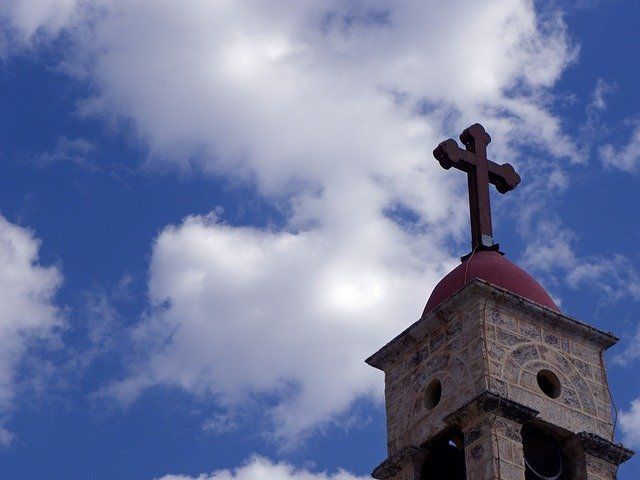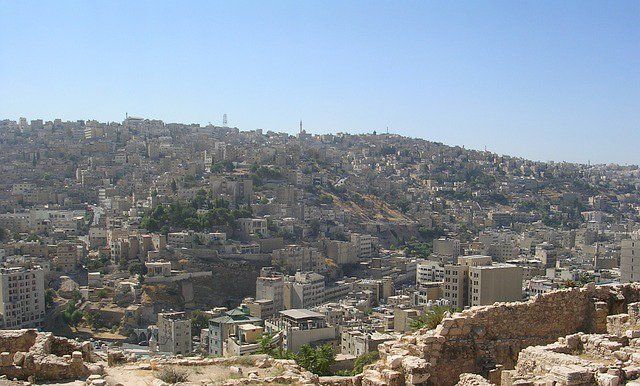The Arab Palestinian population is estimated to be about 7 million worldwide. About 1.2 million live within the internationally recognized borders of Israel. Another 2.1 million live in Gaza and the West Bank. In Jordan the Palestinians are estimated to be 1.8 million. In addition, there are many hundreds of thousands of Palestinians who, since the Arab/Israeli war of 1948, have dispersed to neighbouring Arab countries. Several hundred thousands also live in North and South America, Europe and elsewhere.
The present Arab Palestinian population is for the most part Sunni Muslim. Until the end of the nineteenth century about 40% claimed an ethnic Christian identity. Now only about 8% of the Palestinian people in both Palestine and Jordan are ‘Christian’. Towns like Jerusalem, Bethlehem, Nazareth and Capernaum had ‘Christian’ majorities until about forty years ago. Two main reasons account for this astounding decline in numbers. In the first place, Arab ‘Christians’ always tended to have smaller families. Even though very few Muslim Palestinian men are inclined to have more than one wife, most of them have many more children than the average Christian or Jewish families. (It is noteworthy that despite the ongoing flow of Jewish immigrants from different parts of the world to Palestine, the growth rate of the Arab population within Palestine continues to exceed that of the Jews. This, of course, has far-reaching long-term implications for the demography of the land.)

The majority of ‘Christians’ among the Arab Palestinians have always belonged to the Greek Orthodox Church. The second largest group belongs to the Latin Catholic Church (Roman Catholic). Some belong to the Maronite Catholic Church. Others affiliate with ancient Assyrian or Chaldean churches. Historically, there was an unwritten understanding between Western ‘Reformed’ mission agencies, that both Palestine and Jordan would be an Anglican field. For this reason, most Palestinian Protestants have an Anglican background. The second most significant affiliation is with the Lutheran Church.
The founding Anglican and Lutheran missionaries were quite evangelical and Reformed. Their success was mainly in gaining converts from among those with ‘Christian’ backgrounds. Both groups have now, for the most part, lost their zeal for the gospel of God’s grace, and both continue to decline in numbers due to emigration, loss of spiritual care and lack of evangelism. Most Lutherans have been influenced by the deadening influence of Scandinavian ‘Protestant’ liberalism, while Palestinian Anglicans have become very liturgical and preoccupied with political struggle against the Jewish take-over of the land. Many have become so embittered that they have decided to reject much of the Old Testament Scriptures as ‘pro-Zionist’. This seems to be due both to a lack of true Reformed instruction and to an over reaction to unsound Dispensationalist theology.

In Jordan there are a few Palestinian families of Reformed persuasion but there are no Reformed congregations. In Gaza, the West Bank and within the borders of Israel there are quite a few small Arab evangelical groups, mostly Arminian and/or Dispensationalist. Most of them were established by dis-satisfied Anglicans and Lutherans. At least four of them show a growing interest in the doctrines of grace and this is where the Middle East Reformed Fellowship (MERF) seeks to help. In Gaza, a young man of Reformed persuasion, converted while studying in Egypt, is conducting a small Bible study group. This work was initiated by an elderly man who trained at MERF’s study centre.
A growing number of Palestinian Muslims respond to gospel radio broadcasts. MERF’s strategy in work among Arabs in Palestine is rooted in two convictions. First, we are strongly convinced that embracing ‘the whole counsel of God’ will go a long way towards giving the local believers and churches a lasting and credible Christian witness among the suspicious and quite religious Muslim majority. Second, we believe that training and supporting local believers and groups is the most effective way of proclaiming the gospel among Muslims in Palestine.
The opportunities for a faithful gospel ministry among Palestinians in both Palestine and Jordan are many. It will take time to gather and consolidate a sizeable harvest. Reformed Christians need to realize that, even now, more than 95% of missionary efforts and resources in Palestine are given to outreach among Jews. Generally in the UK the Reformed communities have shown interest exclusively in the plight of the Jews and in supporting efforts directed to evangeliszing them. Very little or nothing is done to stimulate prayer or support for an indigenous ministry among Arab Palestinians. May believers everywhere seek the salvation of both Arab and Jew.






